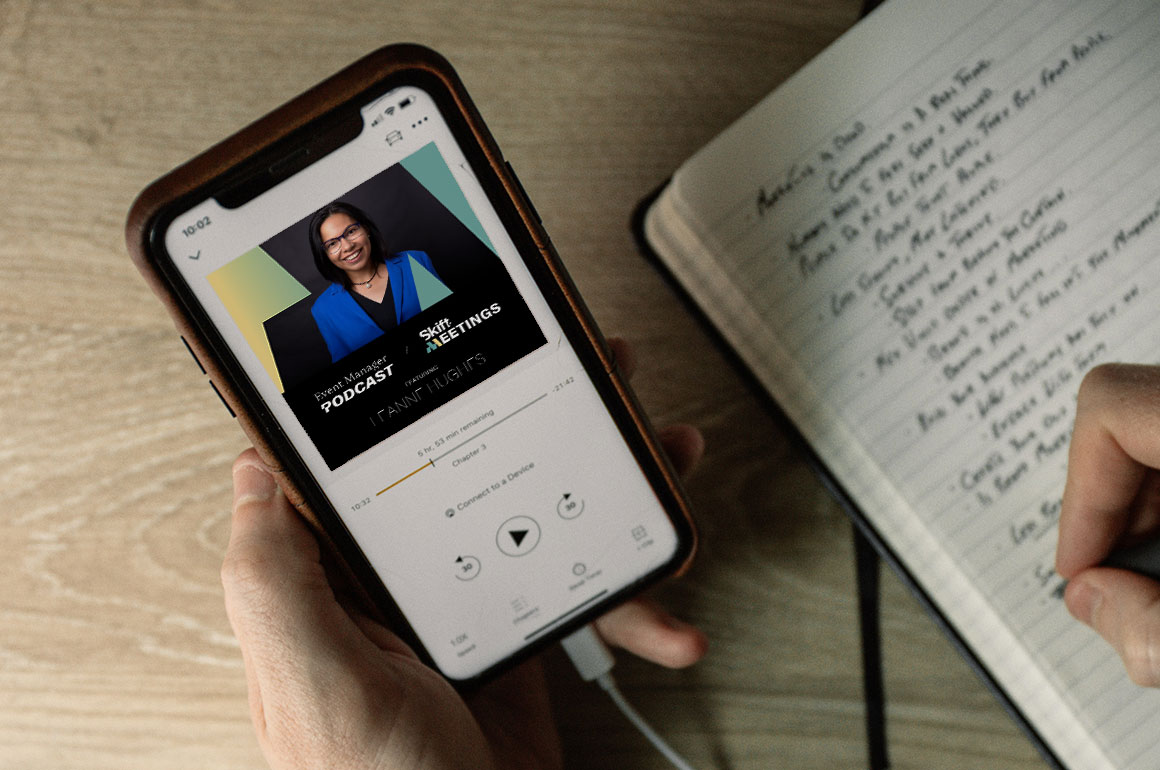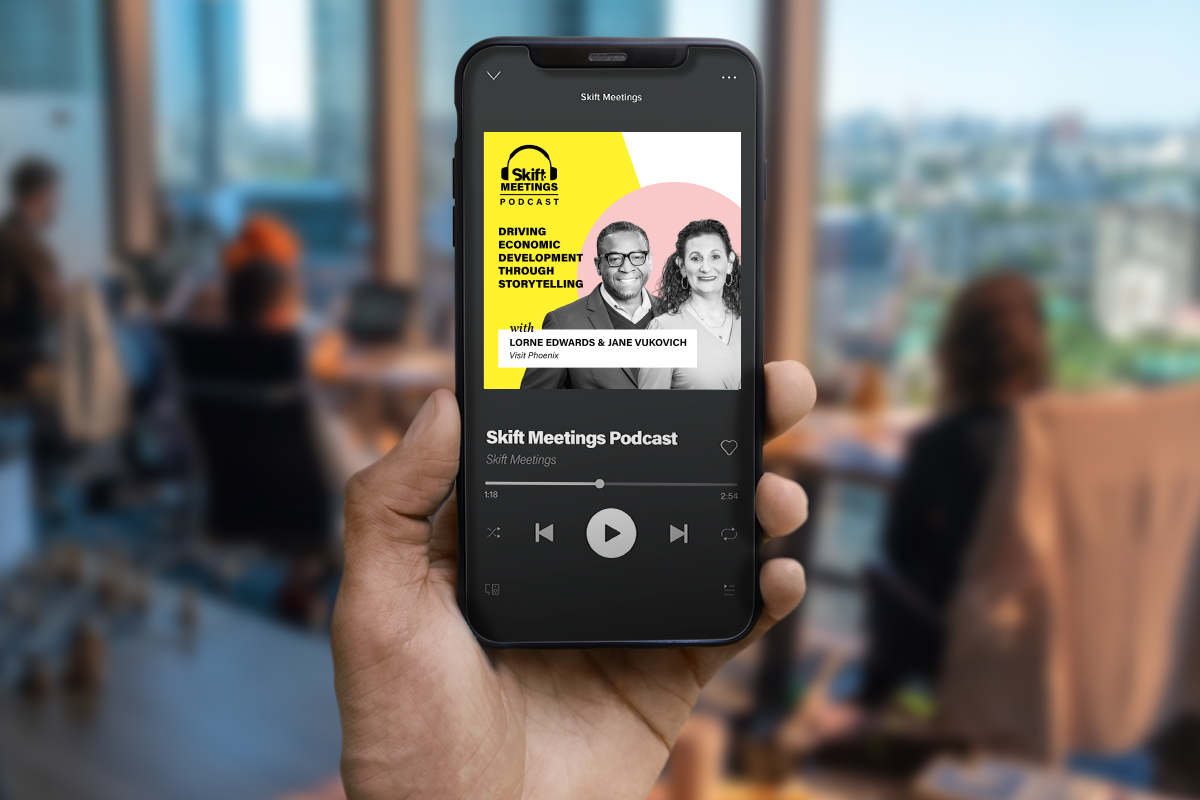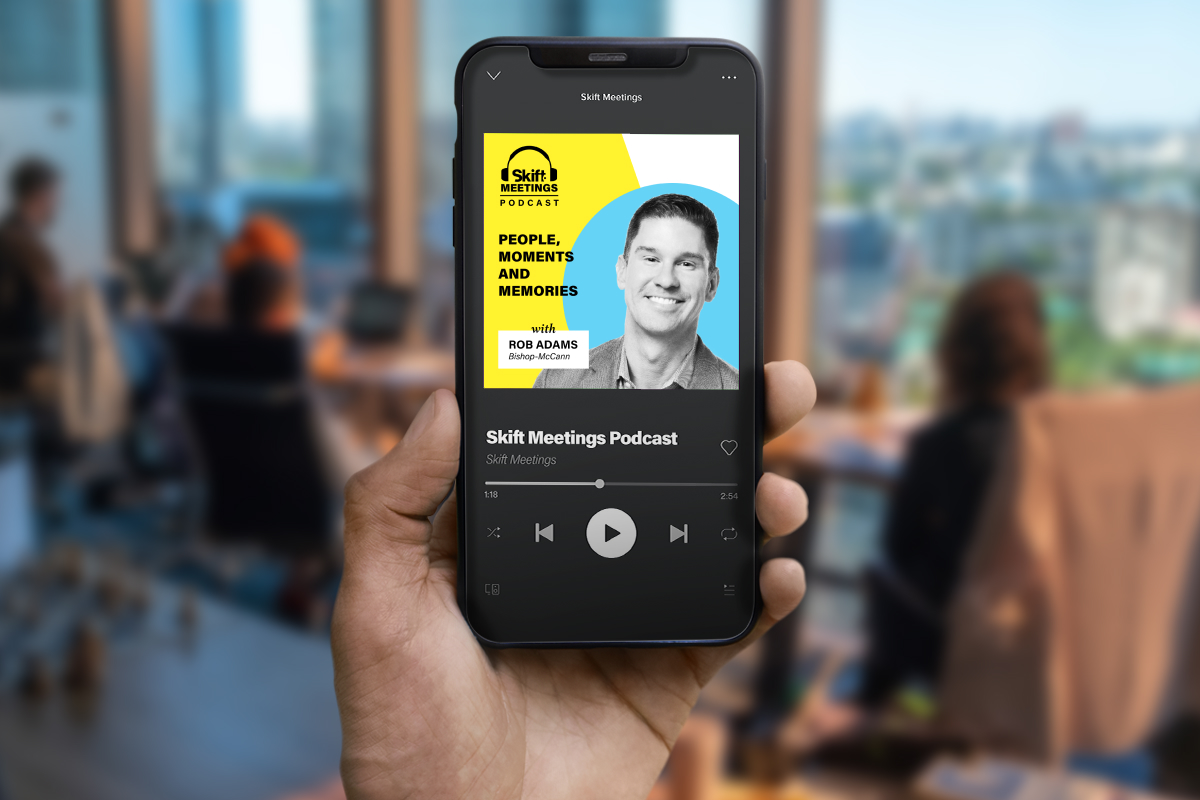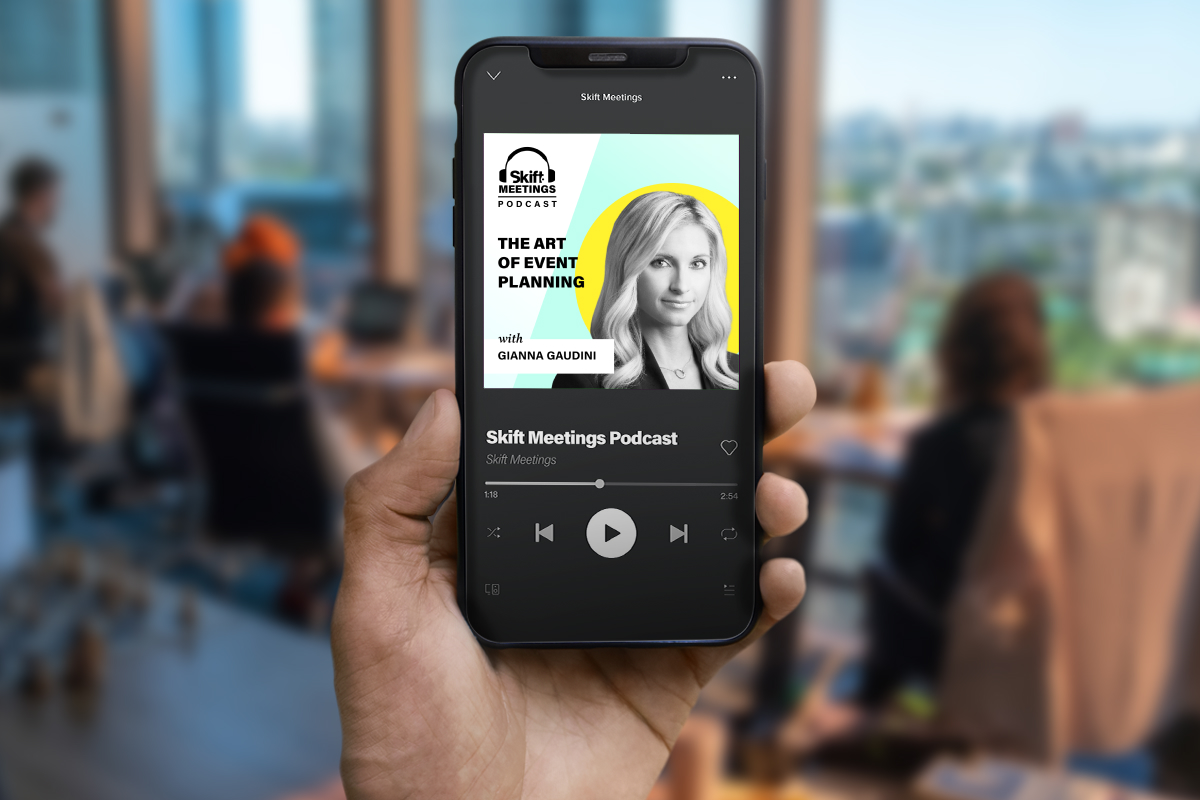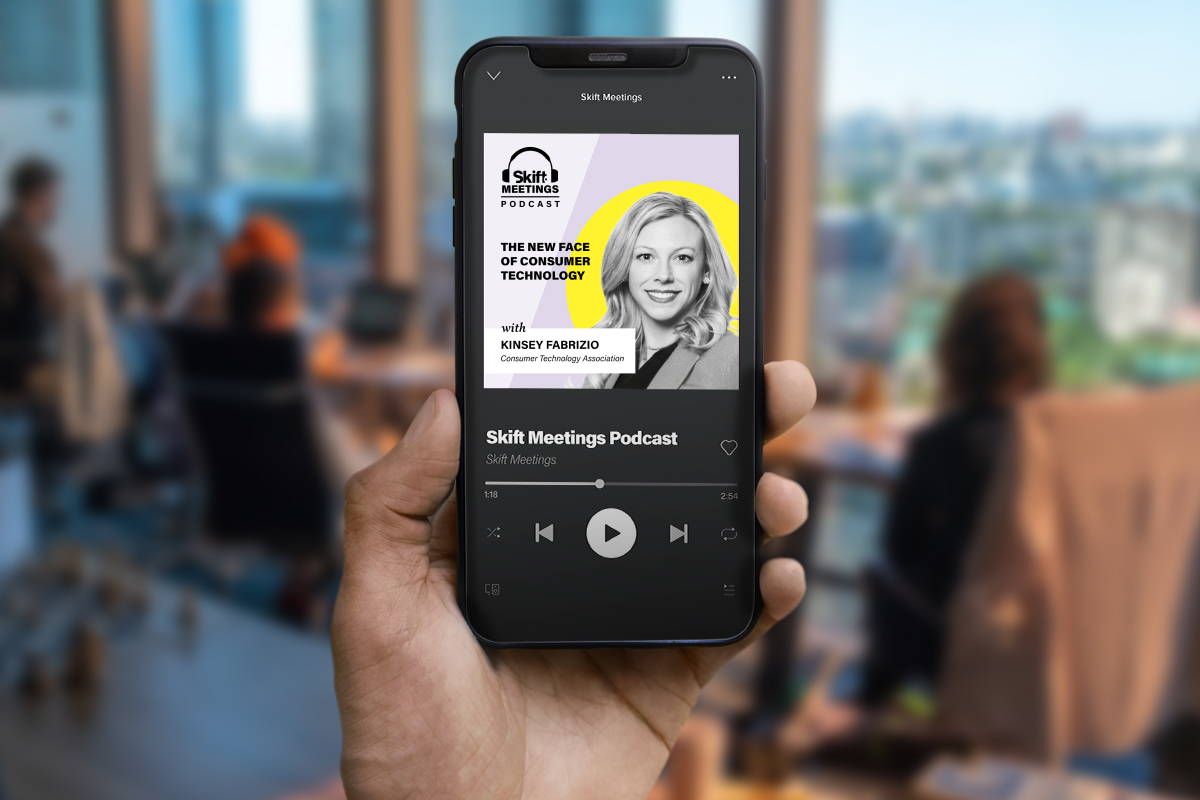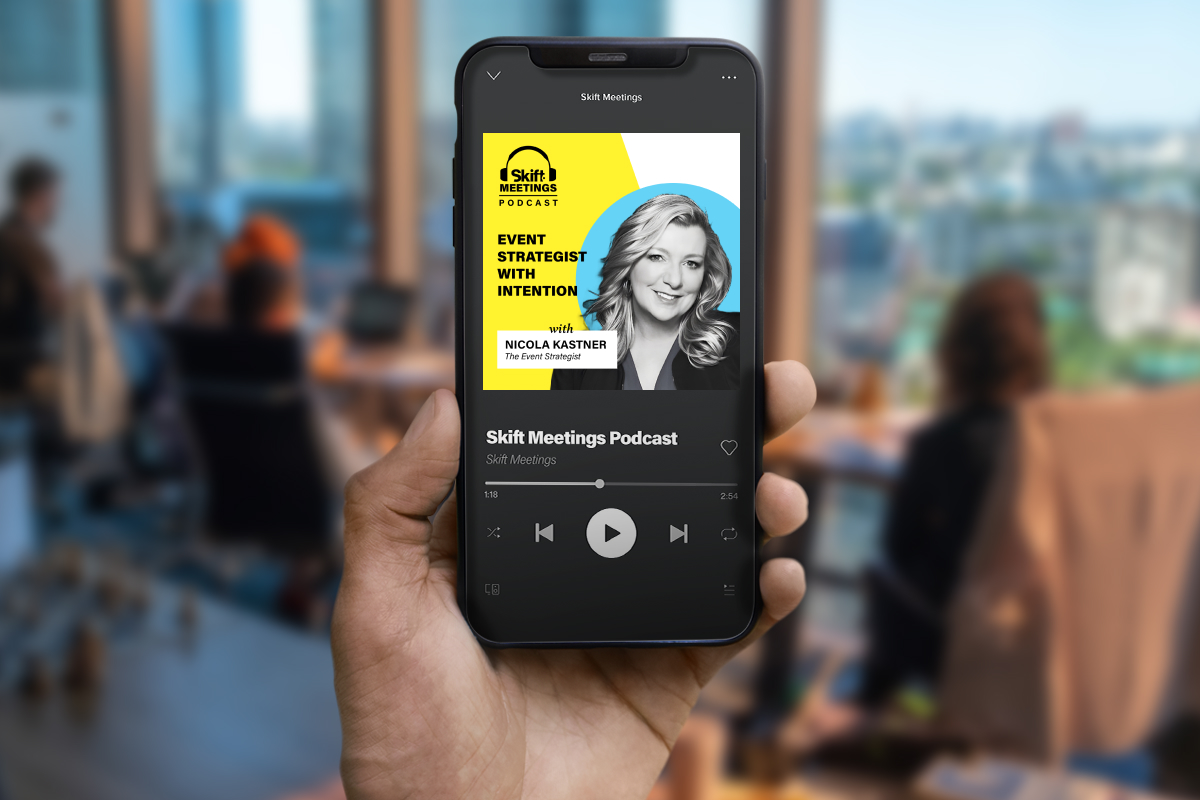Leanne, who is based in Brisbane Australia, is an international consultant, facilitator, advisor and speaker who believes in creating unpredictable workshop experiences that predictably work! She is also the host of two podcasts; First Time Facilitator and Leanne Hughes’ Work and Live Large. In 2021 she was awarded the Asia Pacific Institute for Learning and Performance – Learning Professional of the Year (external) – which is awarded to ‘an individual (employed or contractor) who has shown outstanding skill, professionalism and exceptional results through their learning initiatives.’
Subscribe to the Skift Meetings Podcast: Apple Podcasts | Spotify | Overcast | Pocket Casts | Google Podcasts | Amazon | RSS
Her work combines her degree in Psychology with her experience in Marketing and passion for group dynamics, all of which works together to help her help leaders dramatically improve team performance. She believes in the power of unleashing the potential of what we can achieve together collectively when we assemble groups of people together.
Leanne has worked with organizations around the globe, both in person and online, from Australia to Canada, Hong Kong, India, Indonesia, Mongolia, Papua New Guinea, Singapore and more. Her 14-plus years of experience spans industries and sectors including; minings, government and tourism to name just a few.
So, what is the difference between facilitation and training? Leanne explains goes back to the start, explaining that when she began her podcast ‘First Time Facilitator’, she was in fact a trainer. For Hughes, the difference between facilitation and training is the sense of control. With facilitation, the more you grow and develop into the role, the more you are able to feel comfortable controlling it less, ie shifting your focus away from time managing the process, and instead focus on creating a dynamic that allows the group to engage and participate in a way that allows them to achieve their desired outcomes. Leanne also discusses how her approach has changed throughout her career as a facilitator and what she considers to be a ‘good outcome’ for her work.
You might be thinking ‘what are some of the challenges facilitators face?’. Leanne explains that one of these challenges is the difficulty in drawing a direct line between the work of a facilitator and the results that they can provide to an organization. However, she also notes that it is important to be aware that what a business may engage with her, i.e. the outcome that they are looking to achieve and the issue that they are looking to address, may change and develop as the facilitation process progresses. For example, Hughes explains that there are times that there is a defined outcome in place when the process begins, however as you are working through the facilitation, it becomes clear that this is shifting and changing, which requires both the facilitator and the group to pause, reassess and then move forward. From a facilitators perspective, this requires Hughes to be vulnerable, to accept that the plan has changed and work with the group to address this. She gives an example of a time that this occurred, how it was addressed and what this meant for the company and participants.
One question Hughes gets asked a lot is ‘how do I increase engagement’. Hughes notes that, like many of us, she believes that engagement is in fact attention in disguise. For Leanne, increasing this means leaving behind the ‘predictable’ and doing the unexpected instead. She explains what this means for her own process, the strategies she uses to avoid the ‘predictable’ element and hopefully increase the engagement of participants.
A theme we have been seeing crop up across multiple podcast discussions is the idea that a great event starts way before it has actually started. Hughes shares this same sentiment, noting the book ‘The Art of Gathering’ by Priya Parker, who shares the idea that the event has started before it has even started. Hughes uses this philosophy when constructing her own sessions, ensuring that participants are excited and engaged before they have even arrived at the event. She notes that, in her opinion, events fail when they are designed to just start when the programme starts, instead of utilizing the possibilities to create rapport, excitement and community before we even get to kick-off time. Hughes discusses some of her favorite examples to use and implement, as well as providing an example of an event she attended which took this approach and why it worked.
Change is ultimately the end goal of facilitation, and Hughes feels that should be the same goal for events, arguing that there needs to be a point to both facilitation and events. People shouldn’t leave the same person that they were at the start of a session, some form of change should occur during the process, whether that’s facilitation or a traditional event. If you leave the same as you arrived, Hughes believes that the event, or facilitation, has failed. You’ll hear Leanne explain what she considers to be ‘change’ in this instance and if there is a limit to this.
Hughes’ work as a facilitator looks at challenges and helps to address them, so what does she consider to be the biggest challenge that businesses are facing? Looking back, Hughes notes that the challenges businesses are anticipating now are different to those that were being discussed pre-pandemic. For Hughes, she believes that the acceleration of change is the biggest challenge; people and businesses need to be more flexible. Hughes discusses how this has impacted her own practice, giving examples of the tools and strategies she no longer uses because the results they produce are static, thus no longer relevant days or weeks later.
As always, this is just a little snippet of what Miguel and Leanne discuss, so head on over to your favorite podcast platform and listen to the full episode now.
Whilst you’re there, hit that subscribe button to ensure you never miss an episode, plus you can catch up on all previous discussions with a wide variety of guests.
